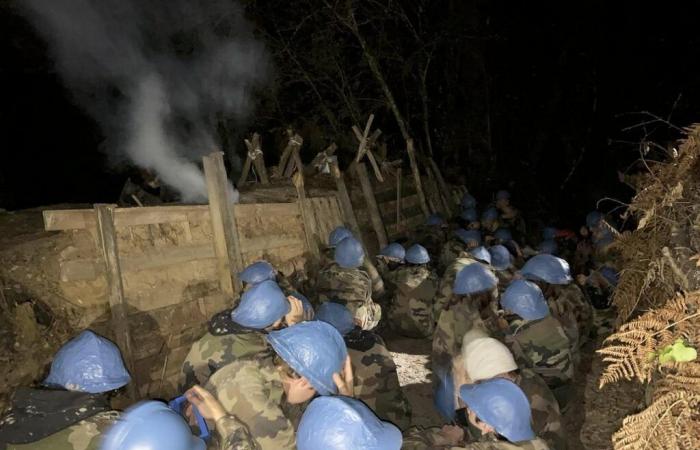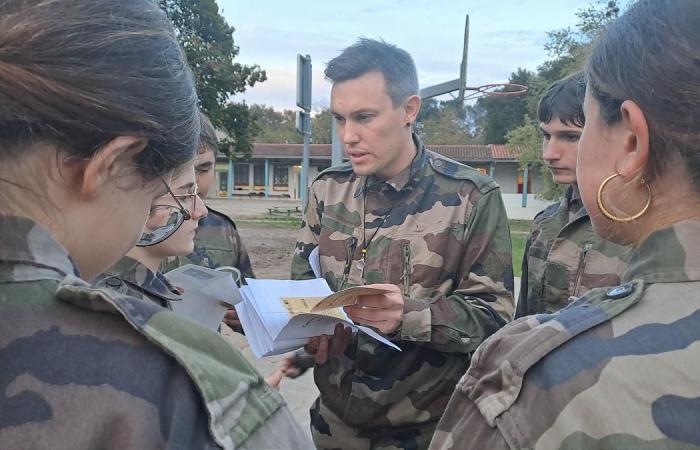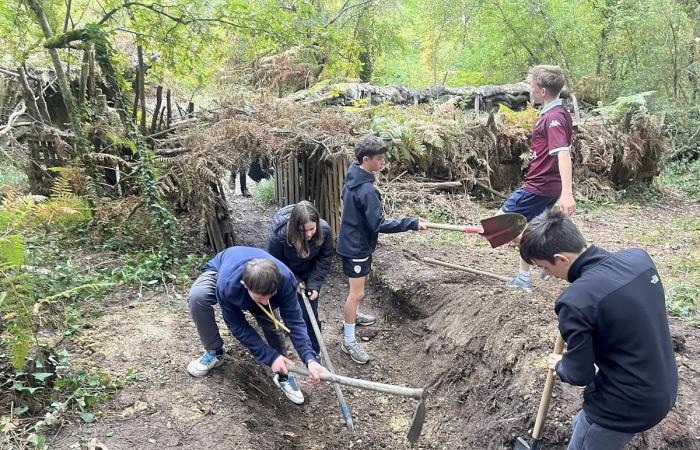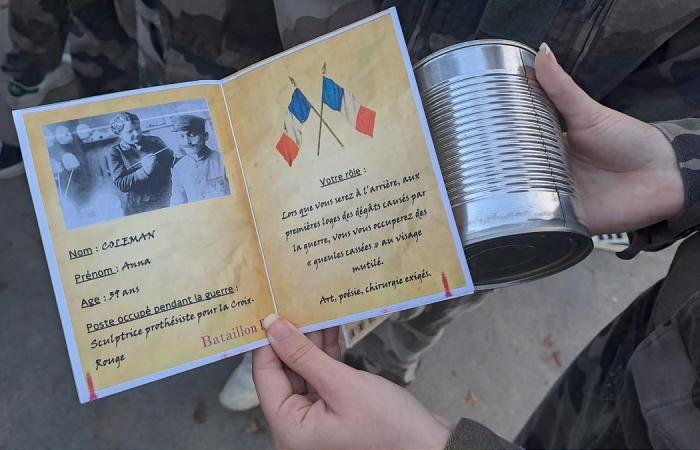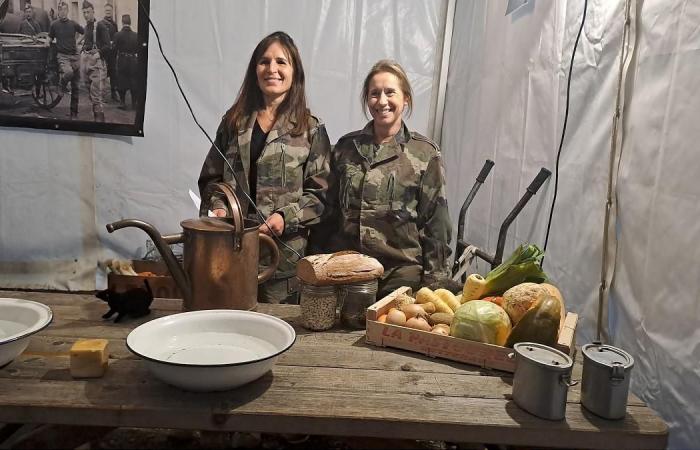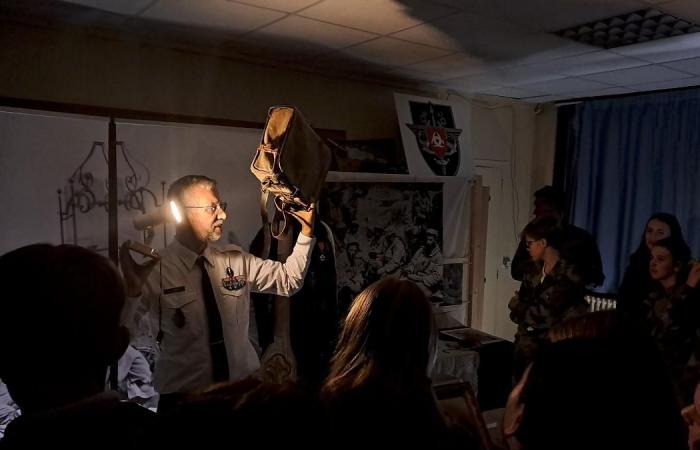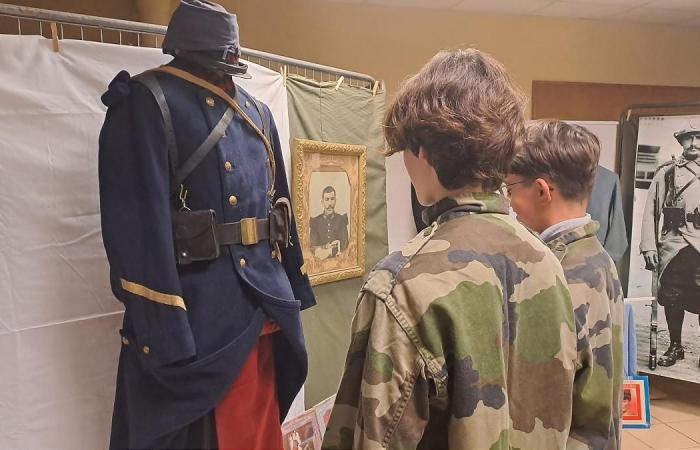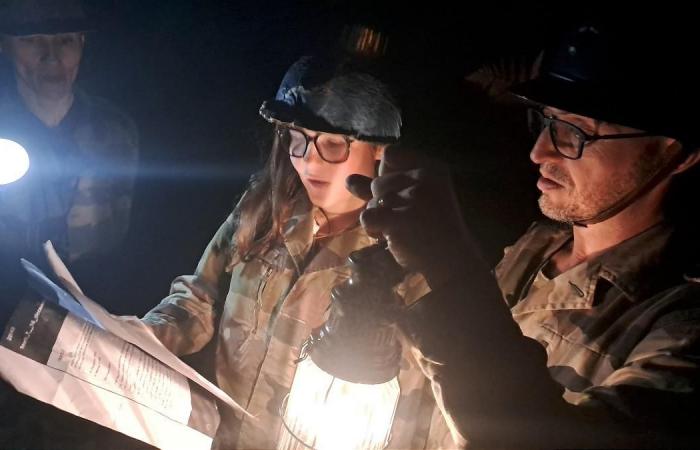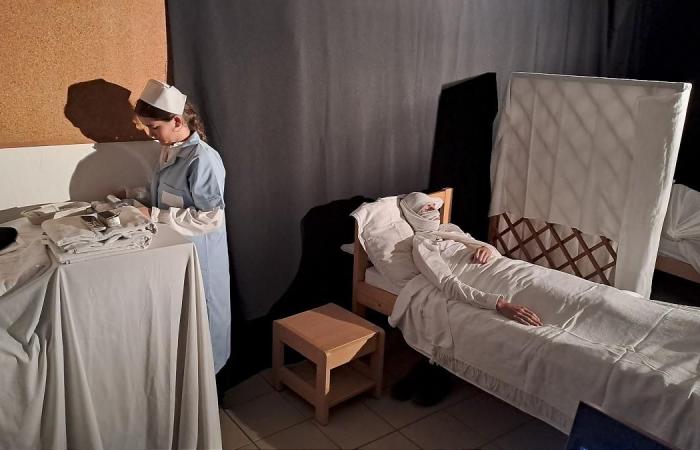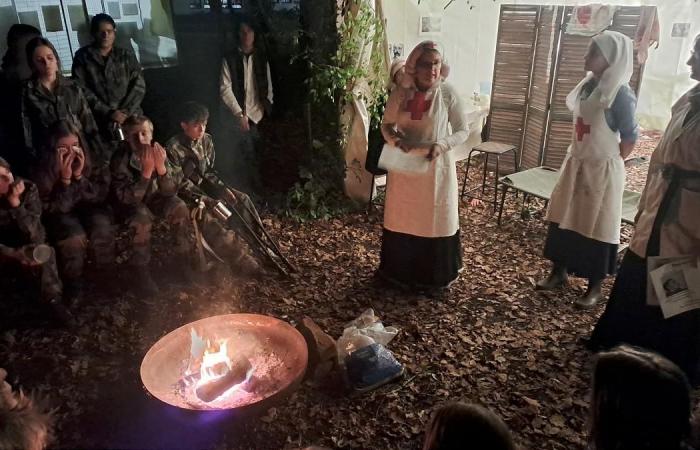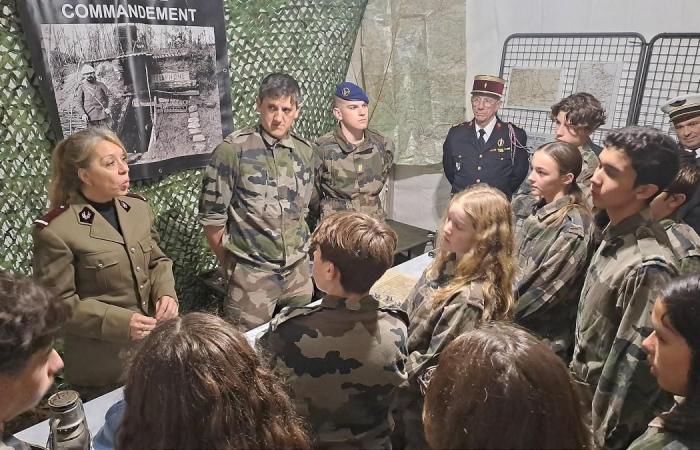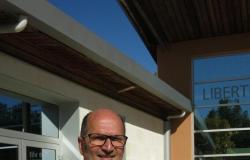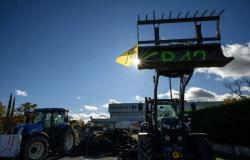RAmbaud went to war again. Friday, November 8, three days before the 14-18 armistice, 170 middle school students from La Brède donned soldier's uniform for a large-scale historical reenactment.
Director Emmanuel Vilbois donned the uniform of a senior officer of the Great War to command the battalions. The story doesn't say if the mustache is real.
A.D.
A.D.
History professor Nicolas Batiot is in charge of this historical reconstruction.
The hell of the trenches is now. The director of the Catholic establishment Emmanuel Vilbois puts his battalions in marching order to the sound of the Marseillaise. Students in fatigues greet veterans (real ones). The role-playing game concocted by history teacher Nicolas Batiot is meticulous. “A fellow sports teacher suggested to me in 2020 that we create a trench in the middle school woods to run a workshop on the First World War. » Since then, every year for one day, the third-year students come armed with picks and shovels to dig deeper the trench that would make the paloumayres of South Gironde jealous.
Rambaud College
Each year, one day is devoted to digging a trench in the woods of Rambaud College.
Strengthen arms and brains
Just another way to strengthen your arms. And above all the brain: “We don't need to go to the Ardennes. We have our home trench,” smiles the teacher. Young people plunge both feet into history, wearing a soldier's helmet on their heads. Flashes, sounds of shells, smoke bombs. And too bad for those who lose their shoes in the mud. “Soldiers, go to the front line in silence,” orders a teacher, crossing her fingers that her students do not die of dysentery. “Be careful of lice and rats. »
A.D.
Each student has a specific role to play. This schoolgirl is a prosthetist for the Red Cross. Its role is to relieve broken faces.
A.D.
On the menu this evening, it's rata, the Poilu's soup, a stew of potatoes and beans.
The student soldiers sing a song learned in class: “Goodbye life, goodbye love, goodbye all women. It's over, it's forever, this infamous war. » A schoolboy reads a letter from Poilu, written just before the great sacrifice: “To my little Armand. You can't understand what's happening right now. War, its horrors, its suffering. This card will be a memory of your father. He hopes that in the future, men will be better. May you never be forced to live the life I am currently experiencing in the company of dads, who like me, have left little angels at home. Be extra kind to your mother and those who will raise you. »
A.D.
Battalion Chief Dambiel of the Bordeaux defense base support group presents the infantryman's knapsack.
A.D.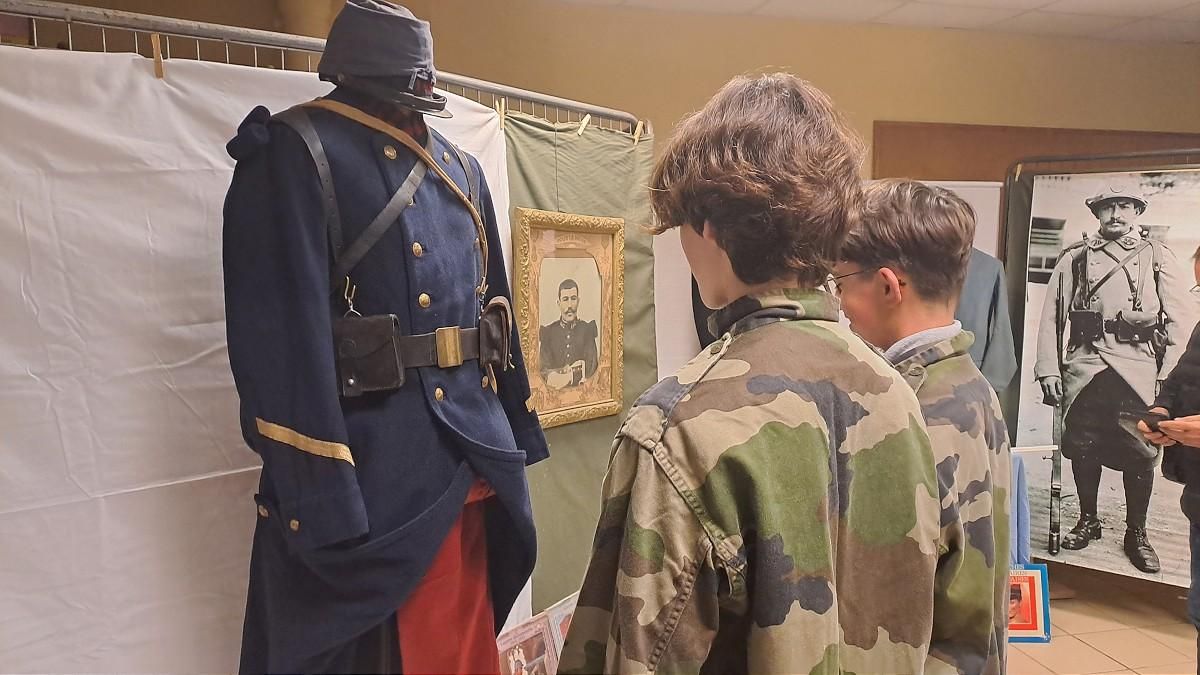
The Poilus uniform in 1914 with madder red pants.
A living history
The shooting stopped. Direction the cemetery, shaped next to the trench. The students carry out workshops in the marquees lent by the town hall: communications at headquarters, care in the infirmary, Poilu soup and the rear base. Reservists from the support group of the Bordeaux defense base present the different uniforms of the Great War and the famous madder red pants of 1914. In a room near the exhibition, third graders perform a small play. A tribute to the women who held the country at arm's length and who healed the broken faces.
A.D.
Letters from Poilus were read in the trenches after dark.
A.D.
A play was performed by the college students to highlight the work of women in the rear.
End of the reconstruction. It’s time to share the survivors’ meal: the rata. Potato and bean stew is poured into cans. A real feast after all these emotions. “We understand history better when it is told in a lively way,” defends the history professor. Nicolas Batiot is soon planning a trip to the Normandy beaches. Normal, in a few weeks, his students will study the Second World War.
A.D.
How to treat wounded soldiers? Rambaud's physics and chemistry professor became a Red Cross nurse during the Great War.
A.D.
In the command post: letters from the Poilus passed through the censorship filter before being sent to the families.

